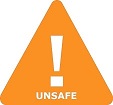Forever Skin Glow 24h Wear Radiant Perfection Skin Caring Foundation With Sunscreen Broad Spectrum Spf 35 Lasting Hydration 1cr while Breastfeeding

What is Forever Skin Glow 24h Wear Radiant Perfection Skin Caring Foundation With Sunscreen Broad Spectrum Spf 35 Lasting Hydration 1cr ?
Brief: Sunscreen
Forever Skin Glow 24h Wear Radiant Perfection Skin Caring Foundation With Sunscreen Broad Spectrum Spf 35 Lasting Hydration 1cr safe in breastfeeding?

Octinoxate and Breastfeeding
UnsafeOctinoxate (Octylmethoxycinnamate) has been detected in human urine, blood and breast milk and is known for moderate risk of skin allergy. Some studies suggest that Octinoxate has estrogen like effects however less than 1% skin penetration has been found in human laboratory studies. As not much study has been done on effects of Octinoxate during breast feeding its recommended to use safe alternatives.
Octyl Methoxycinnamate (OMC) is a frequently used UV-filter in sunscreens and other cosmetics. Octinoxate can be systemically absorbed after skin application, being found in the deeper layers of the stratum corneum as well as urine, plasma, and breast milk. The mean maximum plasma concentration detected after application of 2mg/cm2 sunscreen was 7ng/mL in women and 16ng/mL in men. FDA study found blood levels 13 times above cutoff for systemic exposure.
Several studies indicated that OMC acts as an endocrine disruptor due to the ability to interfere with endocrine system at different levels. In humans OMC exposure has minor, but statistically significant effects on the levels of testosterone and estradiol. Moreover, some studies suggested that OMC can interact with the hypothalamo-pituitary-thyroid (HPT) axis.
Moreover, a study of offspring of dams treated with OMC (500�1000 mg/kg/day) showed sex-dependent behavioral changes, namely decreased motor activity in females, but not in males, and improved spatial learning in males, suggesting that OMC can affect neuronal development, however the doses used in these experiments were extremely high, not relevant to possible human exposure.
Note: Study and data for tropical use onlyWarning: High dosage shall be avoided as reproductive system, thyroid and behavioral alterations in animal studies has been found, Tropical usage in breast area shall be avoided to prevent the OCTINOXATE passing orally in Infants.
Titanium dioxide and Breastfeeding
Low RiskNot much study has been done on effects of topical usage of Titanium Dioxide during breast feeding but as there is no finding of Titanium Dioxide passing in breast milk its unlikely to cause any health issue for infant.
Some animal studies suggest that maternal exposure to titanium dioxide nanoparticles during pregnancy and lactation alters offspring hippocampal mRNA BAX and Bcl-2 levels, induces apoptosis and decreases neurogenesis. But dosage was significantly higher than daily possible exposure to humans.
Note: Study and data for tropical use only. Inhalation concerns in powder or spray products.Warning: Tropical usage in breast area shall be avoided to prevent the Titanium Dioxide passing orally in Infants. Titanium dioxide is possibly carcinogenic to humans. Titanium dioxide can be drastically more harmful if used as powder or spray as risk of inhalation can increase significantly.
What if I already have used Forever Skin Glow 24h Wear Radiant Perfection Skin Caring Foundation With Sunscreen Broad Spectrum Spf 35 Lasting Hydration 1cr?
We have already established that Forever Skin Glow 24h Wear Radiant Perfection Skin Caring Foundation With Sunscreen Broad Spectrum Spf 35 Lasting Hydration 1cr is unsafe in breastfeeding and breastfeeding while using Forever Skin Glow 24h Wear Radiant Perfection Skin Caring Foundation With Sunscreen Broad Spectrum Spf 35 Lasting Hydration 1cr is not a good idea however if have already used
My doctor has prescribed me Forever Skin Glow 24h Wear Radiant Perfection Skin Caring Foundation With Sunscreen Broad Spectrum Spf 35 Lasting Hydration 1cr, what should I do?
If your doctor knows that you are breastfeeding mother and still prescribes Forever Skin Glow 24h Wear Radiant Perfection Skin Caring Foundation With Sunscreen Broad Spectrum Spf 35 Lasting Hydration 1cr then there must be good reason for that as Forever Skin Glow 24h Wear Radiant Perfection Skin Caring Foundation With Sunscreen Broad Spectrum Spf 35 Lasting Hydration 1cr is considered unsafe, It usually happens when doctor finds that overall advantage of taking
If I am using Forever Skin Glow 24h Wear Radiant Perfection Skin Caring Foundation With Sunscreen Broad Spectrum Spf 35 Lasting Hydration 1cr, will my baby need extra monitoring?
Yes, Extra monitoring is required if mother is using Forever Skin Glow 24h Wear Radiant Perfection Skin Caring Foundation With Sunscreen Broad Spectrum Spf 35 Lasting Hydration 1cr and breastfeeding as it is considered unsafe for baby.
Who can I talk to if I have questions about usage of Forever Skin Glow 24h Wear Radiant Perfection Skin Caring Foundation With Sunscreen Broad Spectrum Spf 35 Lasting Hydration 1cr in breastfeeding?
US
National Womens Health and Breastfeeding Helpline: 800-994-9662 (TDD 888-220-5446) 9 a.m. and 6 p.m. ET, Monday through Friday
UK
National Breastfeeding Helpline: 0300-100-0212 9.30am to 9.30pm, daily
Association of Breastfeeding Mothers: 0300-330-5453
La Leche League: 0345-120-2918
The Breastfeeding Network supporter line in Bengali and Sylheti: 0300-456-2421
National Childbirth Trust (NCT): 0300-330-0700
Australia
National Breastfeeding Helpline: 1800-686-268 24 hours a day, 7 days a week
Canada
Telehealth Ontario for breastfeeding: 1-866-797-0000 24 hours a day, 7 days a week
